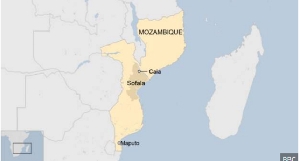Health News of Wednesday, 24 June 2020
Source: GNA
The impact of coronavirus on primary healthcare in Ghana, the case of expectant mothers
Over the past three months, many pregnant women have found themselves in a dilemma of choosing between missing antenatal clinic visits or attending the clinic and exposing themselves to the novel coronavirus (COVID-19) infection.
Unlike some elective medical care that have been suspended in many health facilities, pregnancy and delivery cannot be deferred.
Primary health care
Primary health care, according to the World Health Organisation (WHO), is a holistic society approach to health and well-being anchored on the needs and preferences of people, families and communities.
This, the United Nations (UN) specialized body, explains should be comprehensive - ranging from health promotion and prevention to treatment, rehabilitation and palliative care and should be made available to people’s everyday environment.
Access to health care
It is the fundamental human right of everyone to have access to health care, which is important for the overall physical, social, and mental health status of people. It also enables the detection, prevention and treatment of diseases for quality life.
Importance of antenatal care
Antenatal care can be defined as the care provided by skilled health-care professionals to pregnant women and adolescent girls to ensure the best health conditions for both mother and baby during pregnancy.
Antenatal care interventions have proven to enhance maternal newborn health, and goes a long way to positively impact the health and survival of both mothers and their babies.
Health experts say that regular checkups and screening for pregnant women are vital for the mother and her growing baby.
They insist that there should be at least one checkup per month, during 4 - 28 weeks of the pregnancy, two per month, during 28-36 weeks, and a weekly checkup from the 37th week till delivery.
Dorcas Adwoa Ankomah, a Midwife, speaks of the importance of antenatal care to safe delivery and says it is during antenatal period that laboratory tests and physical and clinical examinations are done to detect any deviation from the normal and prompt treatment given.
“Ultrasound scan is also done to find out if there is any abnormally in the fetus if the fetus is in the correct position among many others”, she adds.
Additional to that, is the health education on diet, lifestyle and safety, given to the pregnant women by healthcare providers.
Safety Measures
Due to the anxiety and fear about the COVID-19 pandemic, healthcare providers have been minimising in-person contact with their patients.
The WHO, and the Government of Ghana, through the Ghana Health Service (GHS), have come up with public health safety protocols to avoid the spread of the respiratory illness.
These include social or physical distancing, washing of hand under running water, use hand sanitizers, wearing of nose masks among others.
Despite these measures, the pandemic has put enormous pressure on health care systems across the world, especially developing countries in Sub Saharan Africa.
This, has in turn affected primary health care, of which, antenatal care is no exception.
The “stay at home and physical distancing” measures have compounded matters.
The COVID-19 disruptions in the healthcare system has led to shortages of basic medical supplies with reports of no Personal Protective Equipment (PPE) for frontline health workers.
The situation has adversely affected prenatal care, something that is crucial for ensuring that pregnant women and their developing babies are safe and healthy throughout pregnancy, for safe delivery.
A GNA visit to some health facilities showed fewer pregnant women have been visiting the hospitals for antenatal care because of the fear of catching the flu-like, and this is common, especially among those in the rural communities. Things are however different in like Accra, Sekondi-Takoradi, Kumasi, Cape Coast, and others. In these places antenatal clinic attendance is quite encouraging.
Madam Lydia Asieduwaa, a midwife at the County Hospital in Kumasi, said about two-thirds of the expected pregnant women had not been visiting for regular check-ups.
She, however, indicated that the challenges notwithstanding, the health workers continued to provide better treatment to patients as it was before the COVID19 pandemic.
“We have taken some precautions to avoid COVID -19 infections - we are practicing physical distancing, avoiding large crowd, and sometimes, we provide online health services for those from far.”
Louisa Brown, a staff midwife at the Antenatal Care Unit of the Assin Nusta Presbyterian Hospital admitted that some of the pregnant women who visited the facility complained of fear but said they had been running their routine prenatal care.
The pandemic had compelled the unit to reschedule meeting times of its clients depending on how old their pregnancies were as part of measures to avoid the virus.
Hitherto, the facility was seeing in excess of 50 clients every week but same could not be said since the municipality started recording cases of the disease.
Increase in COVID-19 cases
Adherence to the safety and preventive protocols has been a big challenge and therefore the continued rise in the number of cases.
Ghana, as of Tuesday, June 23, had a caseload of 14,568, with 95 deaths, and 10,907 recoveries.
Sadly, babies are also testing positive to the virus. At Nkawkaw in the Kwehu West Municipality of the Eastern Region, three babies, aged between three months and two years, are reported to have tested positive.
Another three -month old baby, is also said to have died of COVID-19 in the Northern Region.
Growing fear and impact on expectant mothers
The report of babies and pregnant women testing positive to the disease has further exacerbated the fear of expectant and lactating mothers.
"I am constantly in fear that I may come in contact with a COVID-19 patient as I continue to visit the hospital for antenatal”, Sylvia Agyari, carrying a seven-month pregnancy, from Kumasi, in the Ashanti Region, said.
Sylvia confessed that she had not been visiting the hospital regularly for antenatal care though she knew it was not the best thing for her, especially, when she was going to be due for delivery in few weeks.
Another pregnant woman, Saeeda Adam, said “I am actually scared as a pregnant woman when I have to take public transport to go to hospital for antenatal”.
She suggested to the health authorities to consider providing virtual health services for pregnant women.
Gloria Ampong, talked about how initially, she had continued going for prenatal care but was forced to stop because she was not getting good attention from the nurses.
She is five-months pregnant and lives at Agona Nkwanta in the Western Region.
She, however, would be going to the hospital to deliver when her time was due.
Margaret Simpson, another pregnant woman from Cape Coast, said “I am afraid but there is nothing I can do. The nurses are encouraging us to come for antenatal but I am very cautious when I go to the hospital”.
Worry of expectant partners about delivery
While expectant mothers brace themselves for one of the most intense and emotional experiences of their lives, they are faced with the decision of giving birth to their babies in hospitals that may have COVID-19 patients.
There is also another growing concern that partners, who usually provide emotional support during delivery, are likely not to be allowed into the delivery room.
Rebecca Adjei, whose second child is due next month, is considering the option of giving birth outside the hospital because to go through childbirth at the hospital without her husband by her side will be difficult to bear.
Asked, whether she will be willing to deliver at the hospital, Asana Rasheed, expecting her third child in two months, replied in the affirmative, and said, she was already psyching herself to go to the delivery room.
“I have two children and this is my third child. My husband has been with me during labour and delivery in those instances but there are rumours that partners will not be allowed into the delivery room this time around because of the novel coronavirus.
“For me, I see the hospital as the best place to deliver so definitely I will go there when my time is due," said Leshly Koranteng. She would want to see tight measures put in place to avoid COVID-19 infection.
Shahid Kassim, an expectant father from Tamale, in the Northern Region, said "I can't imagine not being there for the birth of my first child, but I acknowledge that these are not normal times".
Glimmer of hope
There seemed to be a glimmer of hope as I interacted with pregnant mothers, health workers, and the general public.
Despite the fear, anxiety and frustrations, they are optimistic about the fact that the worst of the pandemic could be over by the end of the year.
Their prayer is that God will surely flex his muscles on the pandemic and everything will get to normal sooner.
As we hope for an answered prayer, to end the pandemic, some policy decision must be taken regarding access to antenatal care, to safeguard the gains made by the country in the reduction of maternal mortality and under-five deaths.











